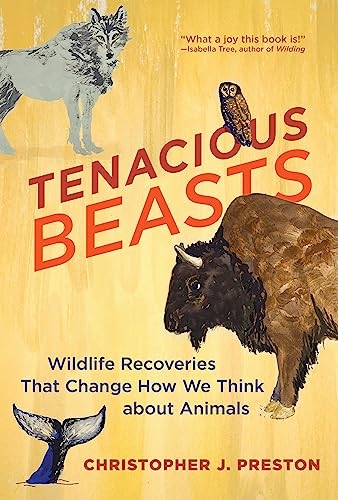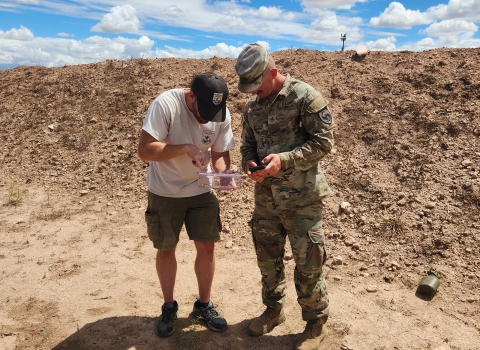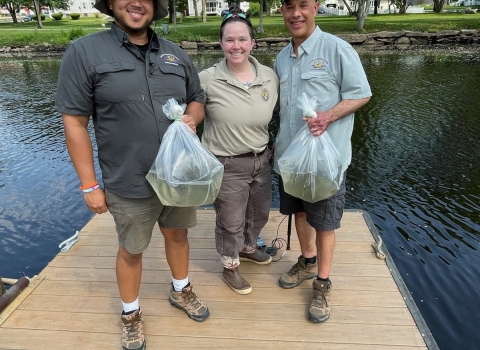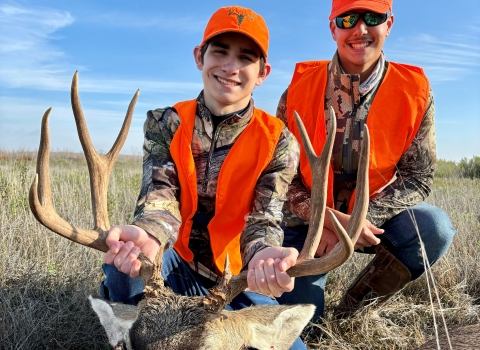This Winter, for America's Wild Read the USFWS Library is reading "Tenacious Beasts: Wildlife Recoveries That Change How We Think about Animals" by Christopher J. Preston. Come join us on Thursday, February 29 at 3 PM ET for our online book discussion and share your thoughts and perspectives on a few of the following questions.
The Wild Read book club meetings are a place where the readers reflect on the reading, answer discussion questions, and enjoy some time together through a conversation on conservation literature. Feel free to also use these questions as a springboard for conversations with your friends, colleagues, or local book club. We hope you join us.
Tenacious Beasts Discussion Questions
Tenacious Beasts is packed full of wildlife recoveries in diverse environments like farms, prairies, rivers, forests, and oceans. Which species spotlight, or section, did you enjoy most? Why?
Did you gain any new insights around the delicate political dance sometimes necessary to restore landscapes and the iconic wildlife that inhabit it?
Preston challenges us to reflects on the basic questions of fairness when considering cohabitation with wildlife, he says, “The world is not just for us.” Do you agree? Do you think co-existence with wildlife is becoming more accepted by human culture?
In the section Farmland Villains, Preston writes about how apex predators, specifically wolves, impact an ecosystem. Do you think the positive scientific data, abundance of prey, and personal accounts is enough to convince people of a “nature inclusive” society?
In the section Prairie Puritans, Preston explores the question of genetic purity for conservation species. How much do genetics matter when it comes to saving a species?
In the section River Engineers, we see that beavers have the remarkable ability to restore the landscape more than any other species of wildlife. Do you think it is appropriate to mimic beaver behaviors, through the use of behavior dam analogs, rather than reintroducing beavers themselves?
In the section Forest Managers, Preston writes about some controversial conservation strategies, including lethal management. Do you think intervention or non-intervention is more ethical when it comes to managing non-native species? What about for “conservation reliant” species?
In Ocean Partners, Preston shares how whales could be partners in carbon capture. Do you think the public is aware of the potential of blue carbon and other nature-based solutions to climate change climate change
Climate change includes both global warming driven by human-induced emissions of greenhouse gases and the resulting large-scale shifts in weather patterns. Though there have been previous periods of climatic change, since the mid-20th century humans have had an unprecedented impact on Earth's climate system and caused change on a global scale.
Learn more about climate change ? How can we (and should we) advance these ideas?
Brought to you by the USFWS Library, America's Wild Read is a virtual book club where we aim to inspire you to engage with conservation literature and nature writing. We hope you will read along with us as we feature various conservation books every quarter — contemporary, traditional, new, and classic.





